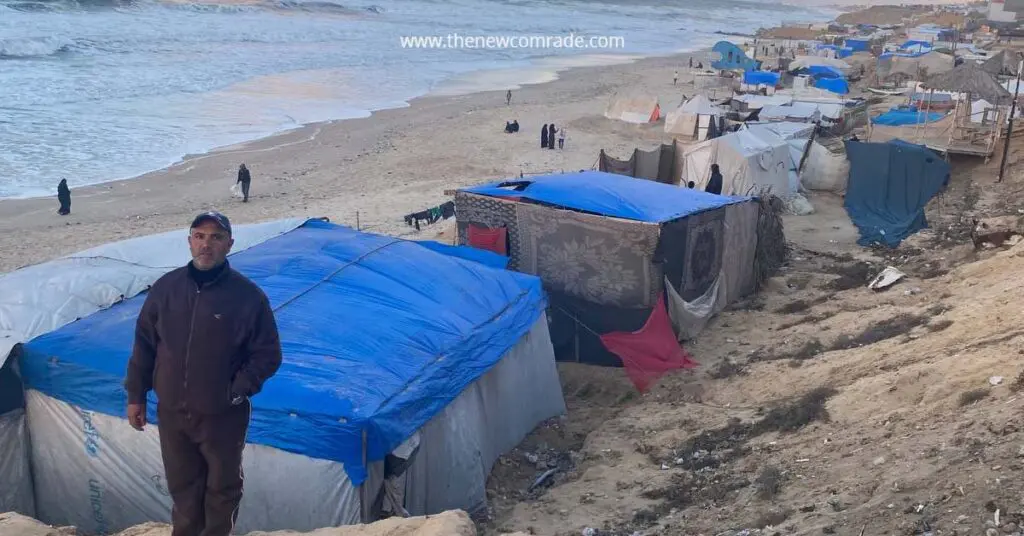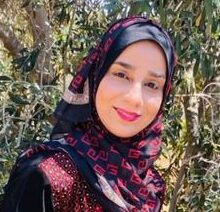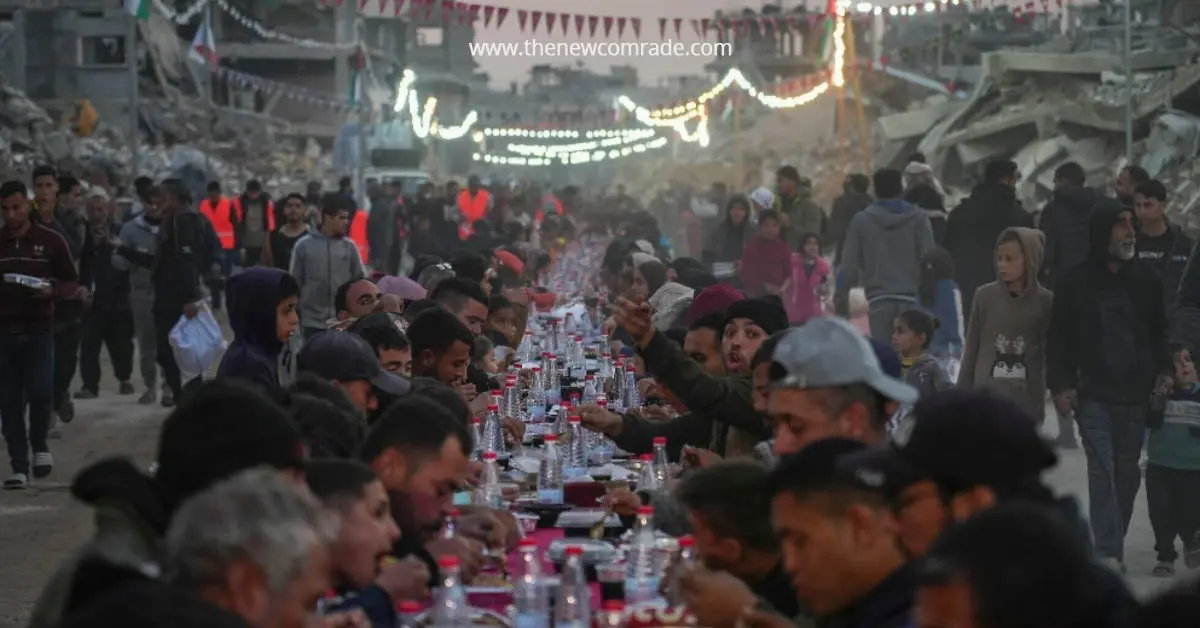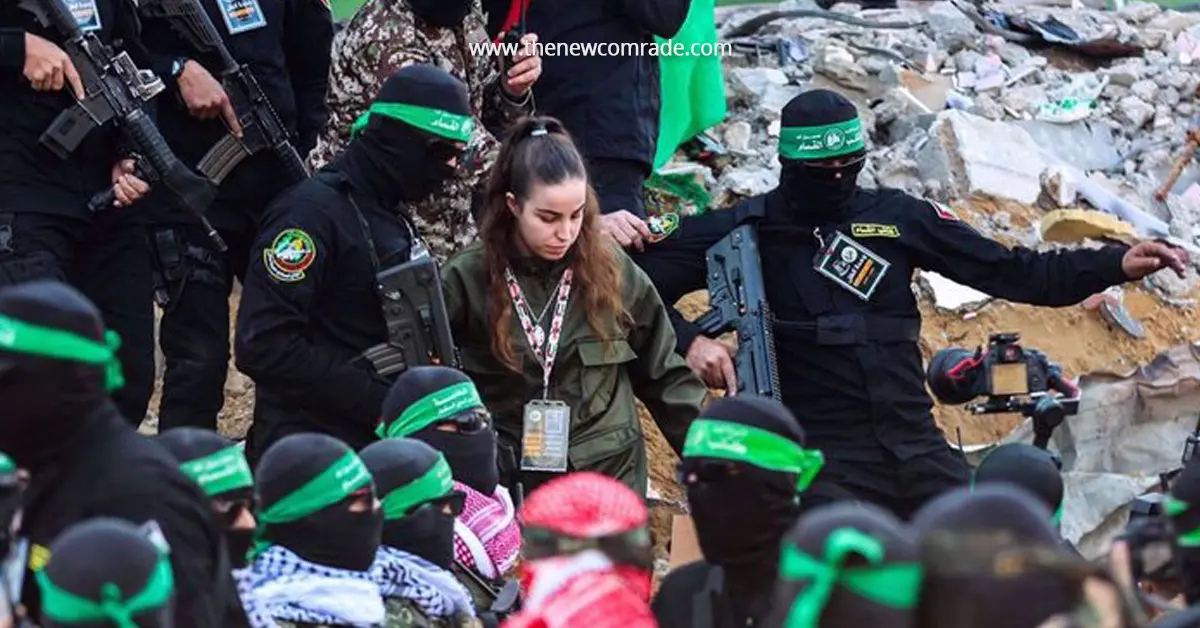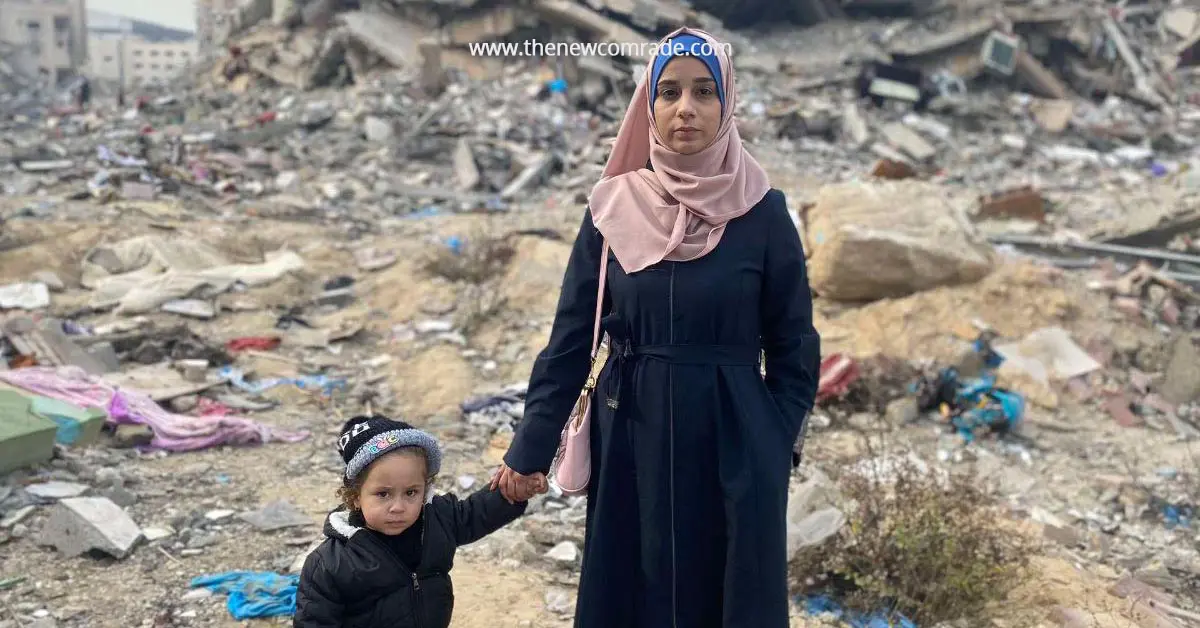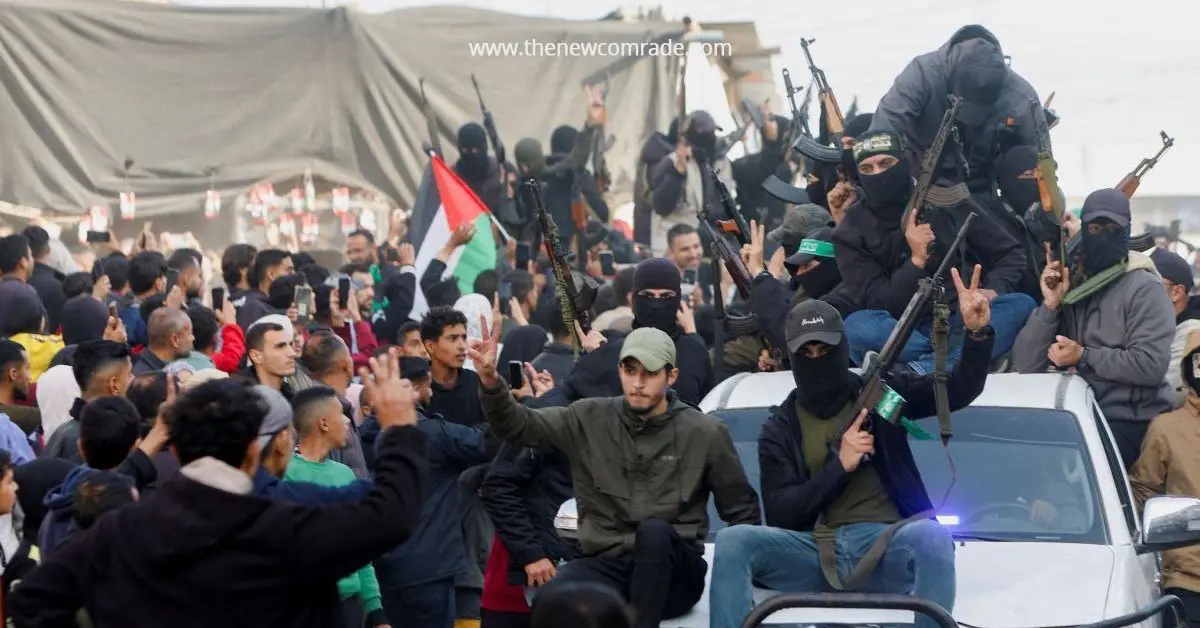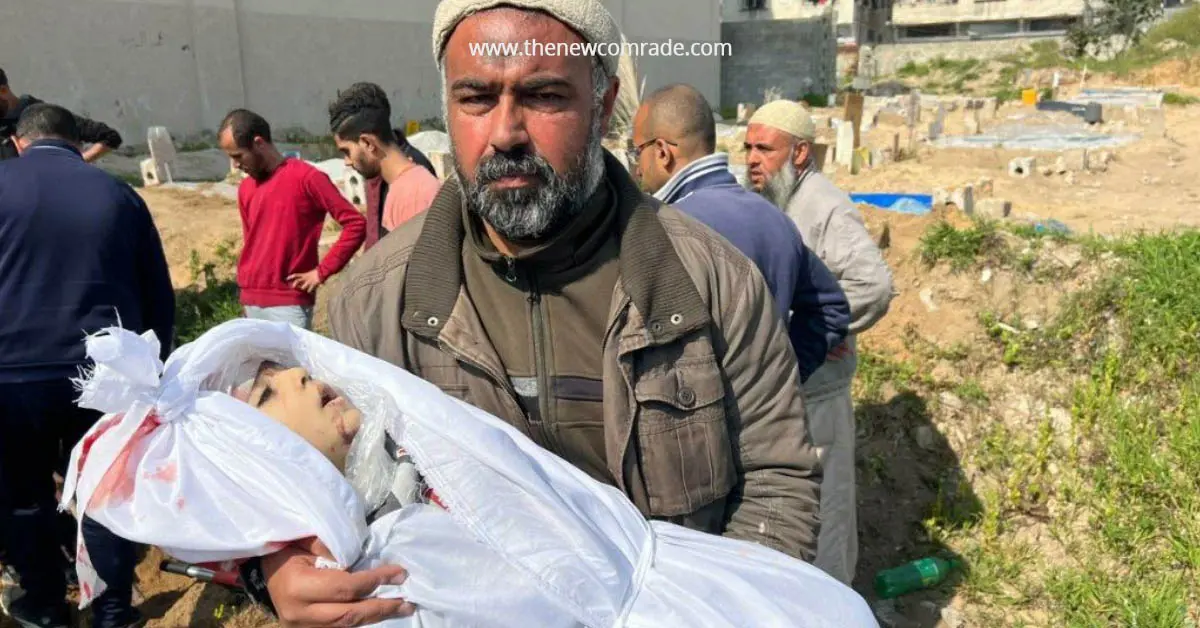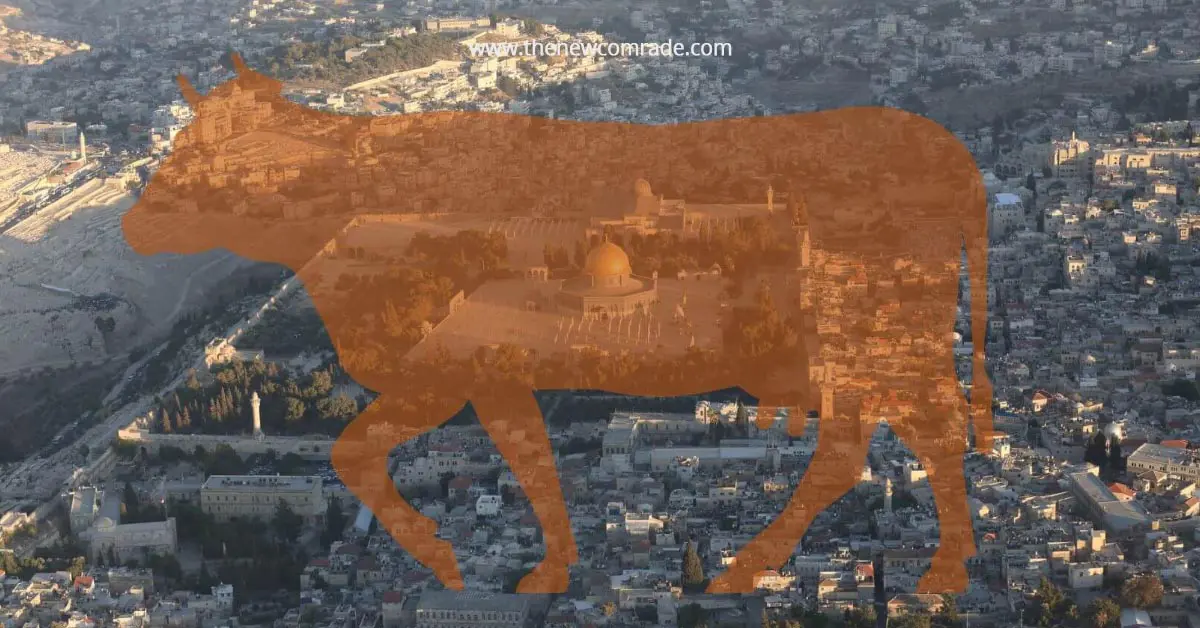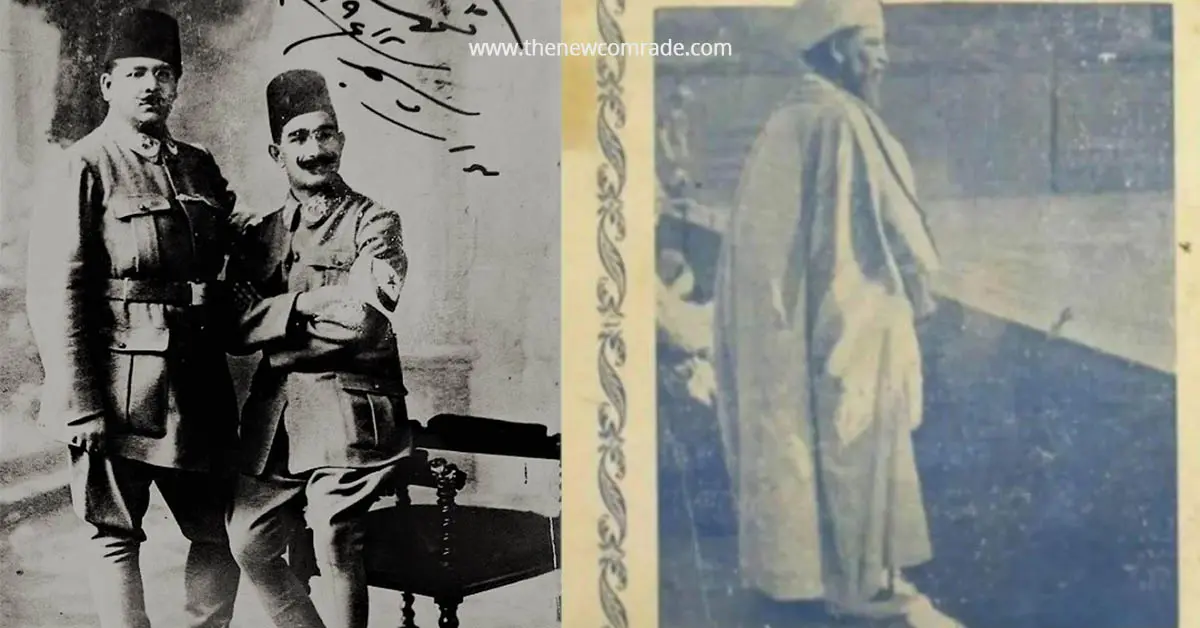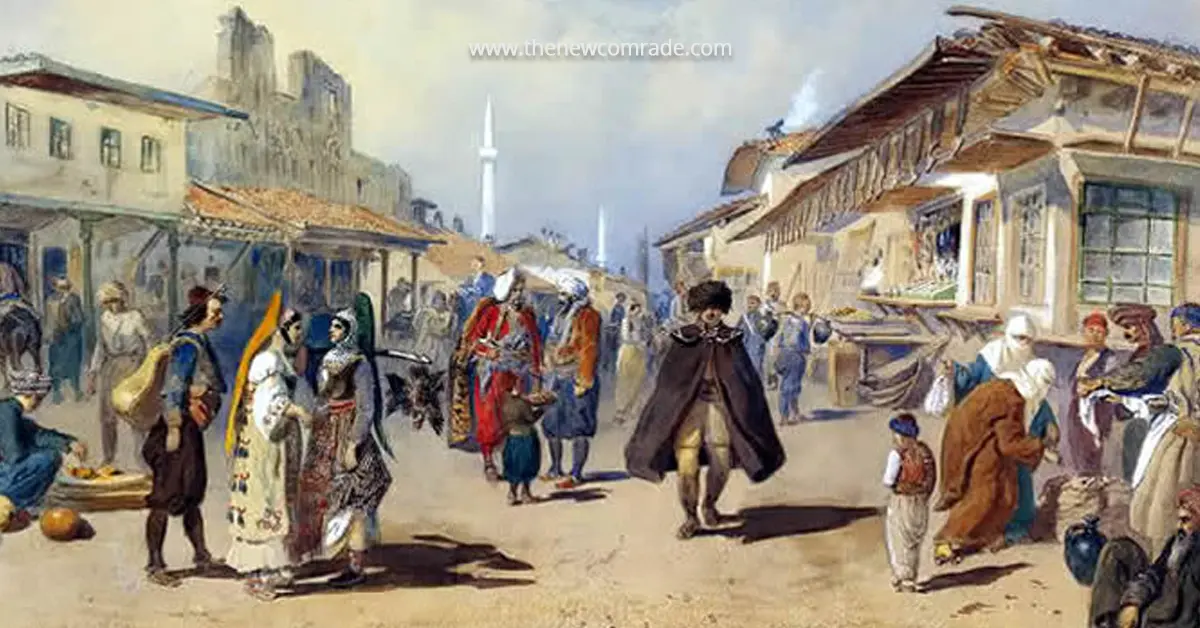While people in different parts of the world welcome winter with joy and engage in activities like bonfires, camping, preparing seasonal delicacies, etc. the situation in Gaza is starkly different. For the people of Gaza Strip, winter brings immense hardships, exacerbating their sufferings as they live in makeshift tents following Zionist aggression since October 7, 2023.
Heavy downpour heralded the start of an unusually harsh winter, threatening countless lives under brutal conditions of Zionist genocide. Displaced Palestinians, particularly those who fled to South and Central Gaza strip after their homes were destroyed by Zionist airstrikes, are living in tents that are grossly inadequate for the season. These makeshift shelters, often constructed from fabric that fails to prevent rainwater seepage or nylon that intensifies the cold, are unfit for human habitation.
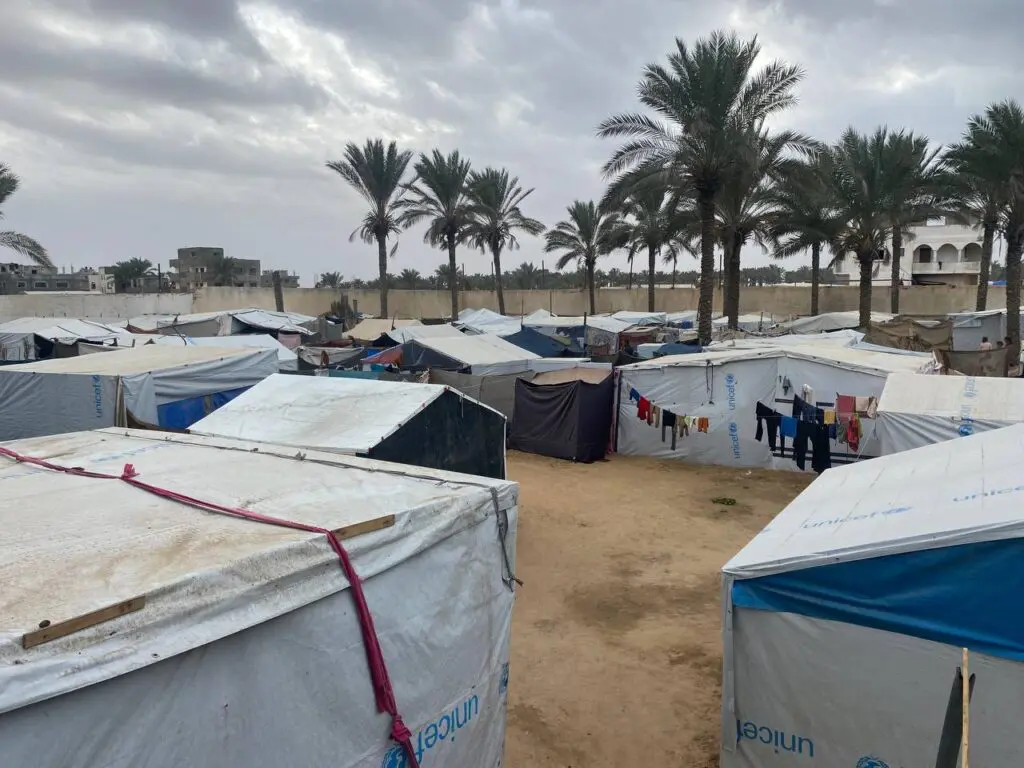
In Deir al-Balah of Central Gaza Strip, as in many other parts, displaced people are struggling to protect their canvas tents from rains and plunging temperatures. They describe these shelters as entirely incapable of shielding them from winter’s harshness. Gaza’s Government Media Office stated on Monday that approximately 10,000 tents were either washed away or severely damaged during the recent storms, appealing for international aid to provide displaced families with adequate protection. “According to government field assessment teams, 81 percent of displaced persons’ tents are no longer usable. Out of 135,000 tents, 110,000 are completely worn out and urgently needed replacement,” the office reported.
Pathetic medical situation
For over a year now, Zionists have been destroying Gazans’ homes and forcing them into overcrowded camps and shelters, where hundreds of thousands, many of them children, have fallen sick. Furthermore, Zionist forces have partially or completely destroyed hospitals in order to prevent obstruct delivery of all medical services. As such, this winter increases likelihood of epidemics in Gaza and exposes hundreds of thousands to frostbite and other life-threatening illnesses.
In one of the camps in Deir al-Balah, an elderly man Abu Al-Abed Abu Saif described to me his suffering inside his dilapidated tent, made up of some covers, wooden poles, and a torn tarpaulin. Abu Saif in front of his tent Abu Al-Abed says that he has been living in this tent since the beginning of exodus from the North Gaza Strip to the south in early October 2023.
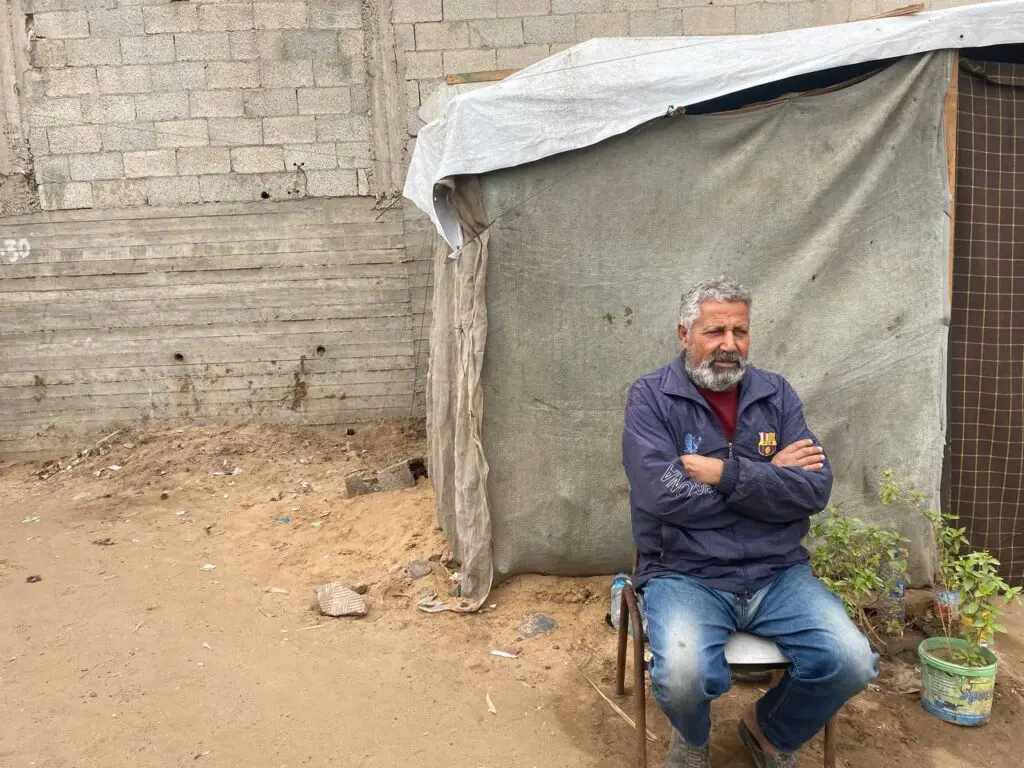
Further, he elaborated to me about his sufferings getting more intense with rains, as his tent gets flooded. He suffers from diabetes, and his health keeps deteriorating every day due to the lack of medical facilities, treatment, and medicine. “We suffer from a shortage of everything: food, drink, and medicine,” he added.
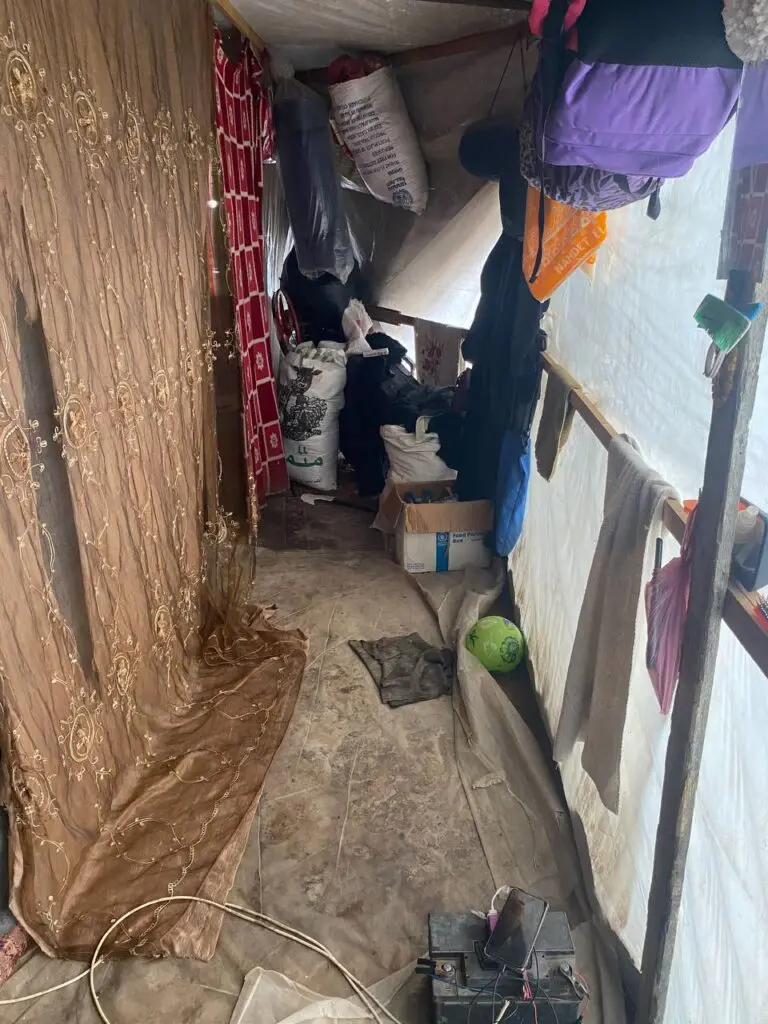
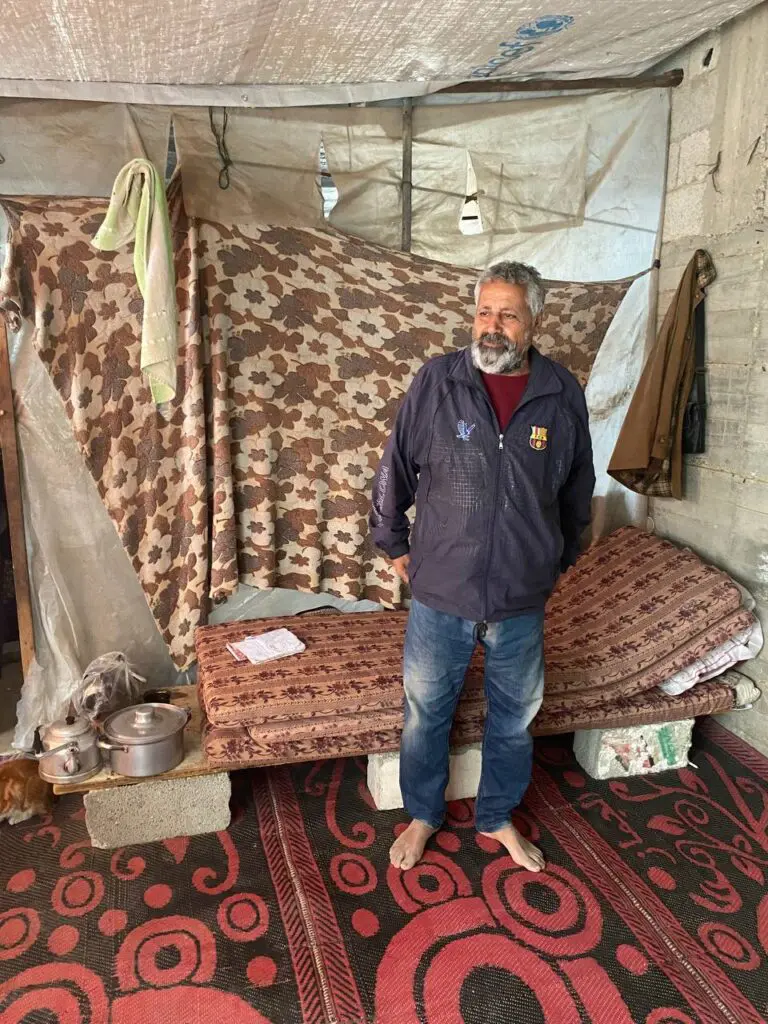
Severe Shortages
Zionist entity continues to block essential humanitarian needs, including food, clean water, and medicine, from entering the Gaza Strip. Consequently, most displaced people rely on food rations prepared by international organisations and humanitarian initiatives, distributed daily as lunch. People queue for these meals amid the severe shortage of basic necessities and exorbitant prices of scant ones that are available.
In a particularly heart-wrenching account, a displaced woman, Fatima Al-Balawi, shared her story in a voice choked with pain: “We were displaced from the north of Gaza Strip to the south last November. My daughter, her husband, and her daughter were martyred, and I could not see them or bid them farewell. My husband has also been detained by the Zionist forces since the beginning of this war.”
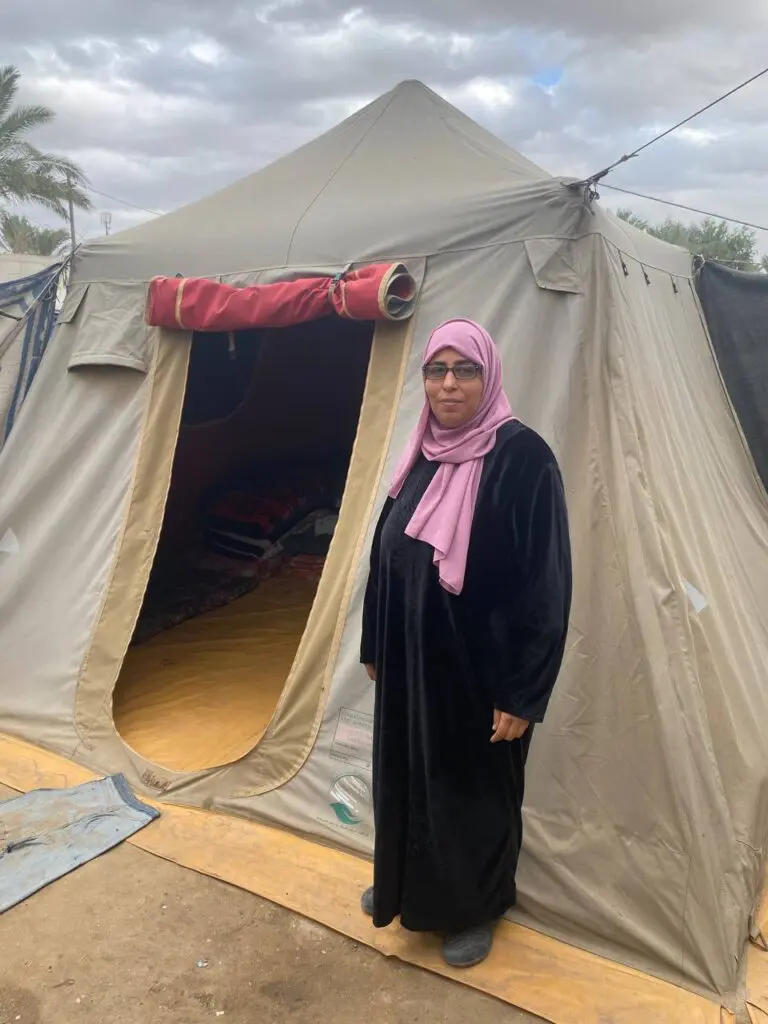
Al-Balawi now lives in a tiny tent with her two surviving daughters and son, lacking basic necessities. She suffers from severely cold conditions, compounded by high blood pressure, diabetes, and spondolytis. “We do not have proper mattresses, blankets, or winter clothes to protect us from the cold,” she lamented.
Flooding Sewage
Winter rains pose an added threat of tents being flooded with sewage. Gaza Municipality’s inability to provide services exposes half a million people to flooding and potential drowning. Atmospheric low-pressure conditions currently looming in the region has exacerbated the already dire conditions, with dozens of tents already flooded, added to absence of any heating mechanism and artificially created famine conditions.
Rain, and Sea Waves
Since the past few days, tents along the beach in Deir al-Balah have been flooded by the raised sea levels following heavy rains. Displaced people there suffer from extreme cold as their belongings and shelters are swept away by waves. In one of these camps, Ayman Hashem, coordinator of Sultan Shelter Camp, detailed devastation there in these words – “This camp houses 320 tents and 1,150 displaced people. Cold air depression caused sea to flood these tents, washing away people’s belongings, bedding, clothes, and even their children. Last night, we rescued children from sea after waves washed them away from their tents while they were sleeping.”
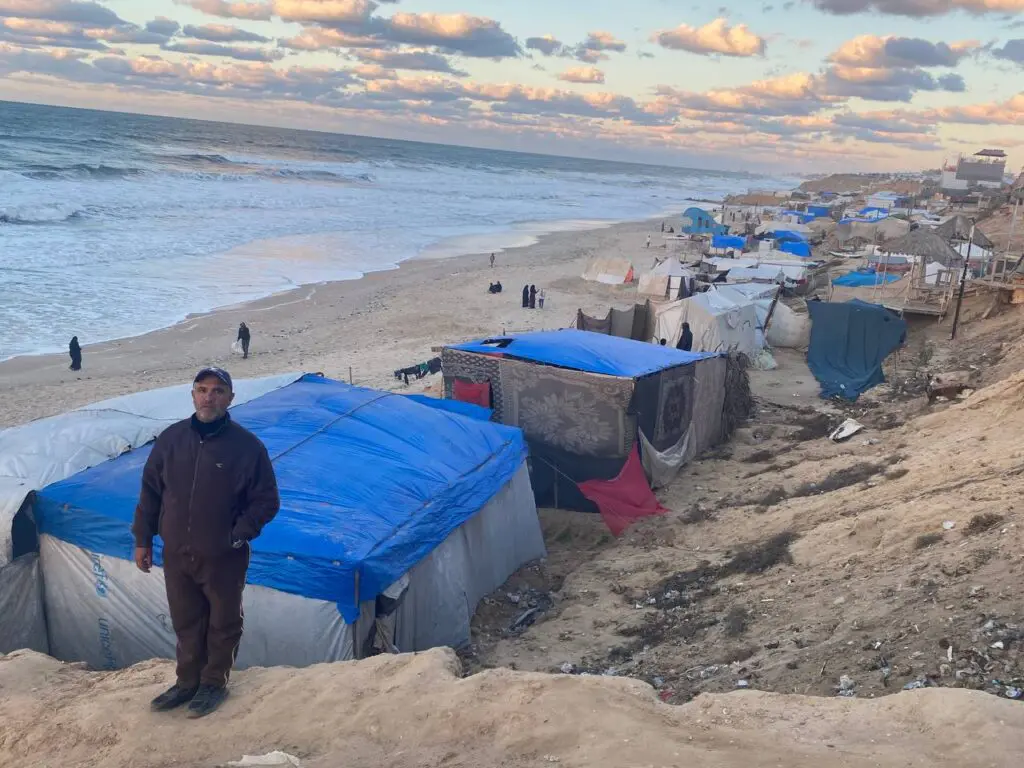
Standing in front of the camp, Hashem added: “… circumstances here are dire. We are in dire shortage of bare necessities of life: food, water, clothing, proper tents, and even sanitation. My message to the Arab and Western world is this: We, in Gaza, are suffering badly, and no one pays attention to us or understands the extent of our plight. We are human beings and deserve to live with the same rights and dignity as the rest of the world.”
Najwa Al-Sheikh Khalil, another displaced resident, shared her harrowing experience: “I have been living in this dilapidated tent since the past seven months. It is made of wooden poles and blankets I gathered from some charities. I live with an orphan child whom I have been looking after from the time he was six months old.” She continued, “The sea recently raged against our tent, drowning us and sweeping away many of our belongings and clothes.”
Standing beside her tent, which was now battered and flooded, Al-Sheikh Khalil expressed her anguish: “Rain is usually a blessing ; but for us, it has been rendered a bane in the face of these terrible conditions. I have begun to hate the sea for the cold, storms, and wind it brings, which worsens my chest conditions and cause severe pneumonia.”
She concluded with a haunting statement: “Sitting here and looking around, I feel oblivious to the world. No one seems acknowledging our presence or our sufferings. We have the right to human dignity.”
Amid this immense suffering, these displaced people of Gaza express their wish for one thing in common, viz. end of the Zionist offensive. As one woman poignantly expressed, “More than food or money, we wish to see this war come to end.”
(Author is a freelance journalist and translator living in Gaza)
